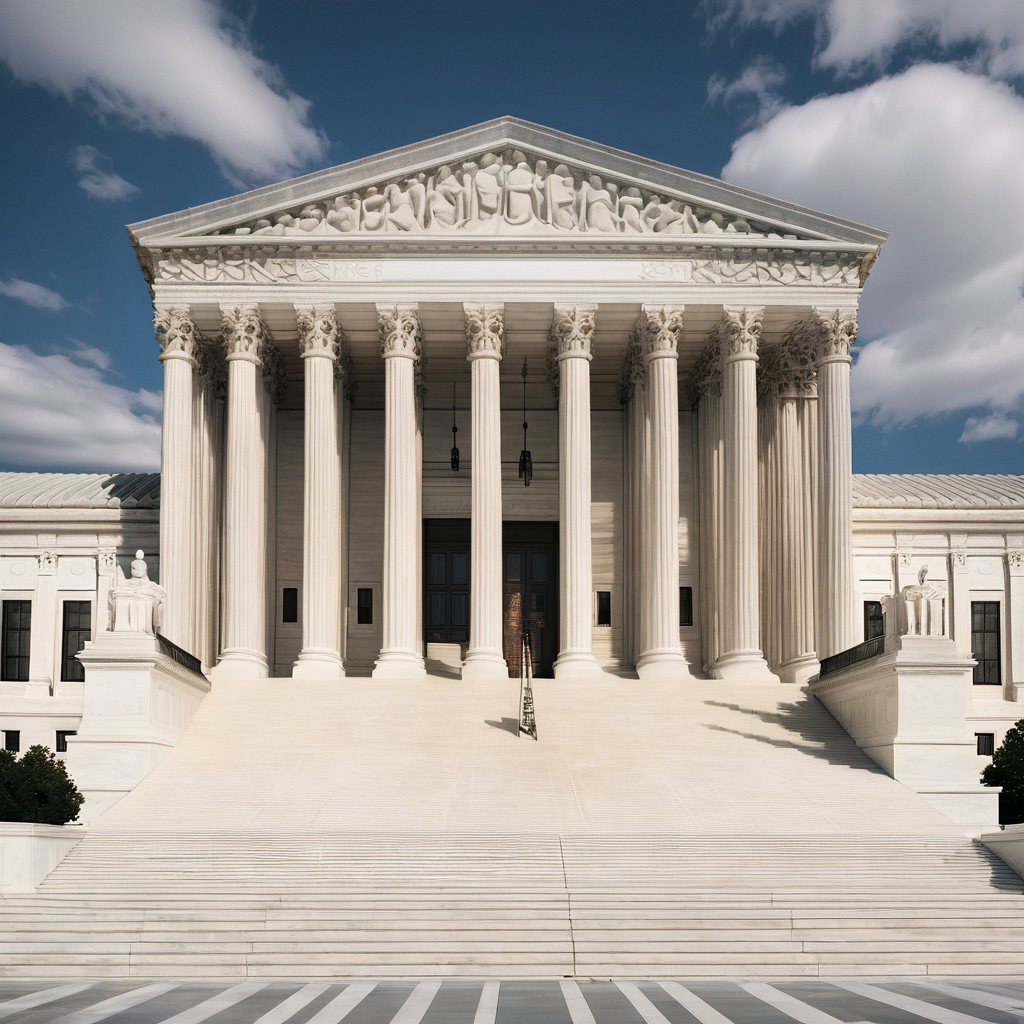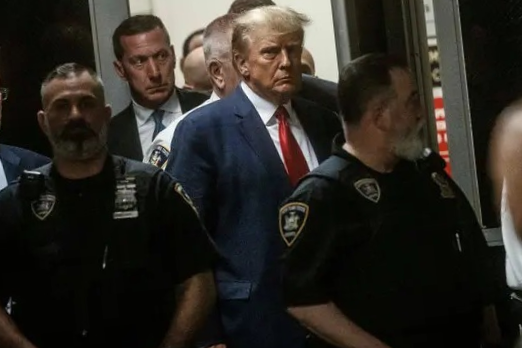In a significant decision, the U.S. Supreme Court has declined to hear Missouri’s challenge to the Trump hush money case. The case involved allegations of improper payments made during the 2016 presidential campaign to silence claims of extramarital affairs. Missouri’s challenge was centered on broader legal principles, including government immunity and state sovereign immunity.

Background of the Trump Hush Money Case
The hush money case of Trump refers to payments made with respect to former President Donald Trump and his associates to various women to silence claims regarding extramarital affairs at the time of the campaign for the presidential 2016 election. Such payments went toward adult film actress Stormy Daniels and former Playboy model Karen McDougal to save Trump from campaign damage. In this case, it would be interesting to know if such kinds of payments were legal or not, with a special focus on campaign finance and probably violations.
On this case, it should be noted that Michael Cohen—the former personal lawyer of Trump—played quite a key role in facilitating these said payoffs.
His conviction for violations of campaign finance laws relating to the hush money payments significantly helped raise the stakes, legally speaking, against Trump and his team. Cohen gave testimony and was subsequently convicted, and the situation suddenly assumed a human face, further complicating the case.
The allegations include the payments that former President Donald Trump and others made to adult film actress Stormy Daniels and former Playboy model Karen McDougall. Both were reportedly paid not to talk about their respective alleged relationships with him prior to the 2016 presidential election.
Legal pressure mounted in the wake of his former lawyer Michael Cohen being convicted of campaign finance violations related to those exact payments.
Missouri’s Legal Challenge to Federal Intervention
State sovereign immunity was the basis of the challenge by Missouri to the case in question, as this doctrine protects states from a suit without the state’s consent. According to the Attorney General of Missouri, Andrew Bailey, the federal prosecution that the hush money case underwent took away state sovereignty. In itself, the federal government engaged in an unauthorized use of the funds of the state. The incumbent challenge thereby seeks to limit federal interference into issues that Missouri deems as purely being a state-level legal issue.
The state’s case was firmly rooted in casting the federal government as having acted beyond its jurisdiction by dragging into the prosecution the machinery of the state. In fact, Missouri was essentially trying to draw a boundary between state and federal legal jurisdictions, especially in high-profile political cases. It was part of the then ongoing resolves by a few states in asserting their sovereignty against perceived federal encroachment.
The case was, however, challenged by Missouri on the grounds of state sovereign immunity relating to the limitations of having state litigation without their consent. According to the Attorney General of Missouri, Andrew Bailey, the prosecution of the case undermined the set doctrine since the case, as already had, dealt with the funds of the state. It was also the argument by the state that there was no need for federal intervention in the given case since it even transgressed legal limitations and considerations.
Supreme Court’s Decision
Challenges of Missouri were shot down by the U.S. Supreme Court of lower court decisions that had thrown out the state’s arguments. By declining the case, the Supreme Court simply strengthened the limitations that had already been set on state sovereign immunity, especially where cases touch dual issues of federal law and significant public interest. It is a ruling that further underscores that the judiciary shall always have a place in making sure there will be liability among public officials, notwithstanding the vehemence of objections of any state.
Even though reasons for the refusal were not provided, fundamentally it would be in line with the court’s historical position with regard to state immunity and federal regulation. Legal experts say the ruling underscores federal powers to enforce campaign finance laws. According to legal experts, the case has set a strong direct precedent for future cases that would involve challenges by the states against federal investigations, hence creating a possible impact on setting the legal landscape for the next couple of years.
By refusing to hear the case, the Supreme Court is essentially upholding lower court decisions that threw out Missouri’s claims. Tuesday’s decision reiterates the limits on state sovereign immunity, especially where claims of federal law and an important public interest are at issue. The Court did not elaborate on the reasons for refusing the case, as is frequently done when the Court denies a hearing.

Implications and Reactions
The decision of the Supreme Court has evoked mixed responses from different quarters.
At one end, the strident campaign finance reformers hail the ruling as a move aimed at bringing in transparency and accountability in political campaigns.
According to them, the judgment prevents fraud related to political financing, which may impact the credibility of the electoral process.
However, opponents argue that such a ruling eats into state sovereignty and even creates a window for heightened intrusion by the federal government.
Missouri Attorney General Andrew Bailey said he was disappointed, and this ruling is a missed opportunity to ‘provide much-needed clarity on essential legal principles associated with the limits of state and federal authority’. This divide in reaction underlines an ongoing tension in the balance of powers between states and the federal government over legal matters.
The Supreme Court decision is thus viewed as a win for the federal supervision of campaign finance offenses.
It brings out how far the judiciary can go in handling allegations of misconduct by public officials despite objections at the state level. According to legal experts, this ruling may set up a future precedent for further state-level challenges against federal investigations.
The challenge of Missouri was an integral part of several states’ attempt to react against federal involvement in legal matters occurring at the local level.

Future Legal Ramifications
Therefore, the Supreme Court’s judgment in the Trump hush money case will likely go a long way in setting the pace for future legal battles over campaign finance and state immunity. By taking a stance on federal authority pertaining to the subject matter, the Court has created a threshold for how similar cases in the future might be adjudicated. It will most probably impact current and future political figures and their campaign investigations.
The outcome delineates a thin line that exists between state sovereignty and federal supervision—an argument lawyers are still grappling with.
The decision is an example of the legal tightrope courts walk on political cases. No doubt that future cases will refer to this ruling when determining the extent to which states can claim immunity from investigations by the federal government and regarding the campaign finance law.
Reactions – Reactions to the decision have been mixed.
Hailing the move, representatives of campaign finance regulation argued that the Court ruled on the appropriate step in the pursuit of accountability and transparency of political campaigns.
Missouri Attorney General Andrew Bailey expressed his disappointment with the judgment, which “misses an opportunity to clarify important legal principles regarding state sovereignty and federal intrusion.”
The outcome will be, for a future legal quagmire on campaign finance and state immunity, something that will reverberate from this decision.



